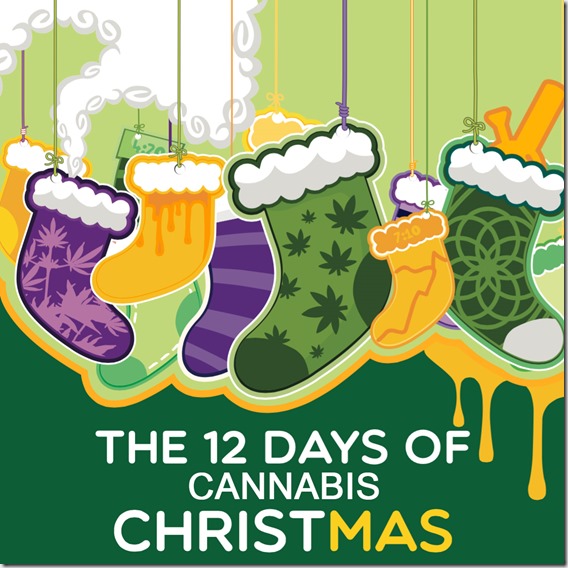A history of the Conservative government’s push for mandatory minimum sentences, what they are, and how to fight back
By Jacob Hunter
On Mar. 3, 2010, the Conservative Justice Minister, Rob Nicholson, reintroduced his party’s Mandatory Minimum Sentencing Legislation (previously known as C-15) into the Senate. The bill is now known as S-10; “S” to denote the bill started in the Senate, rather than “C” for the [House of] Com- mons. So, what is S-10, what does it mean for you, and how can we stop it? Read on to find out!
S-10 contains mandatory minimum sentences for growing, trafficking, importing/exporting, or processing marijuana and a host of other drugs. The Con- servatives say the bill will focus on organized criminals, but the evidence says the opposite.
Mandatory Minimum Sentences (MMS) mean that if a person is charged, the judge is forced to sentence that person to a minimum amount of jail time, regardless of the facts of the case. Famously, MMS have forced people into jail for tending a marijuana plant; having residue on their clothing; and even, in the case of a man in Dubai, for six poppy seeds from a muffin he ate on the plane.
MMS are notorious in the United States, the country which has most implemented them, for filling up prisons—at great cost—with non-violent, first time offenders. Not only are MMS costly, they actually function to increase the amount of crime on the streets – especially in the case of drugs.
Drug dealers are motivated by the amount of money (profit) they can make from selling drugs. The reason drugs are so profitable is because profit is a function of supply, demand, and in the case of prohibition, risk.
The demand for hard drugs remains relatively constant, generally because those drugs are addictive or the users are self-medicating an untreated mental illness. No amount of prohibition will change those two fundamental facts, though comprehensive mental healthcare may.
The demand for marijuana fluctuates with culture, but is generally higher in countries with harsher penalties. There is no known reason for this phenomenon, but it plays out around the world; the harsher the penalties, the more people tend to use marijuana. A possible explanation is that people rebel against what they see as oppressive and unjustified laws by using marijuana despite those laws.
The supply of drugs is kept low because of prohibition. When a supply is low, and a demand high, there is a higher profit to anyone who supplies it. Prohibition attempts to modify this fundamental fact of economics by introducing higher risk.
The risk associated with selling or producing drugs increases as penalties increase. The higher the risk, the higher the profit associated with defying that risk. People tend to balance risk and reward, so the higher the risk, the higher the reward (in this case profit) must be.
So, because the demand for drugs stays constant or increases, while the supply decreases and the risk increases, the price of drugs is directly affected by prohibition. Increase the penalties, increase the price of drugs, and the motivation to sell them.
We can see this play out in the United States, a country with 4% of the world’s population and 25% of its inmates. Recently, the U.S. passed the mark of having 1 percent of all adults, 1 in every 100, in prison, on parole, or probation. The U.S. has more people in jail than China, an authoritarian government with four times the population. The U.S., achieved this dubious honour by introducing mandatory minimum sentences for a host of offences, particularly non-violent drug offences.
So, the result in the U.S., after having jailed so many, and after spending more than 1 Trillion dollars (yes, Trillion, 1,000 Billion), drugs are more available than ever. Many states which passed mandatory minimum legislation in the 1990s have begun repealing them. The U.S. has the highest levels of gang-violence, the worst social problems associated with drug use, the highest crime rates and the richest organized criminals. These all arose after the U.S. introduced its mandatory minimum sentences, getting worse every year since.
It is in this context that the Conservative Government started introducing its MMS legislation. Starting in Nov. 2007, with bill C-26, the Conservatives began pushing these sentences, but refused to offer any evidence for them. Indeed, crime rates in Canada are at a 30-year low.
C-26 would have, if passed, forced a mandatory nine month sentence for growing one plant, along with 18 months for making hash or cookies (in any amount). The opposition parties slowed the progress of the bill, while activists mounted a co-ordinated rally in over 50 cities across Canada. C-26 died when an election was called in the Fall of 2008.
C-26 and its provisions were roundly criticized in media, including articles and editorials from every major news- paper in Canada. Each repeated that the U.S. has tried these mandatory sentences and failed. The Conservatives did not listen.
The Conservatives won the 2008 election with a stronger minority parlia- ment. That allowed them to force C-15, the reintroduction of C-26, through the Parliament and into committee.
For a bill to pass into law, it is introduced in either of two chambers, the House of Commons or the Senate. The bill is voted on and debated two times, then enters committee where it is researched. This committee stage is usually quite lengthy, and involves the calling of witnesses. This is also where bills are most easily delayed, usually by calling additional witnesses. After the committee votes, the bill returns to the full chamber for a final vote. Once the bill passes that third vote (also known as third reading), it proceeds to the other chamber for an identical process. In total, each bill passes six full votes, and two committee votes.

Where C-26 did not make it to the House committee, C-15 did. The committee called dozens of witnesses, mostly researchers and criminal justice experts, while the Conservatives called police. Not a single researcher or expert spoke in favour of the bill, though the Conservative hand-picked police officers who repeated the Conservatives talking points.
The bill passed the House of Commons when the Liberal Party, fearing a Conservative media blitz calling them soft-on-crime, forced its MPs to vote for C-15 or not show up for the vote. The bill proceeded to the Senate, but was delayed by the Summer break. The Senate passed the bill quickly into committee, where it was studied even more intensely. The Conservatives called fewer police, and again the result was the same, with every researcher and expert speaking out against C-15.
Libby Davies, the NDP Deputy Leader from Vancouver-East, asked Rob Nicholson in the House of Commons to provide a single bit of evidence to support C-15—he was unable to do so. Instead, Rob Nicholson responded saying he knew what Canadians wanted. When Stephen Harper was asked a similar question, he told a reporter that his government didn’t govern based on science.
The committee hearings, combined with a busy Senate schedule, delayed C-15 long enough to reach the Winter Parliamentary break. Shortly thereafter, Stephen Harper prorogued Parliament, which killed all pending bills—including C-15.
On Mar. 3, 2010, the Conservatives reintroduced C-15 as Bill S-10. The decision to reintroduce in the Senate confused experts. The Conservatives had spent much of the last few months of C-15 publicly attacking the Senate for delaying a number of bills, though all had taken far longer to pass the house. Stephen Harper had used the multiple breaks between C-26 and S-10 to stack the Senate, where the Conservatives will finally get a majority in the Fall of 2010.
S-10 has proceeded slowly through the Senate since its introduction, despite the increased number of Conservative Senators. The bill has yet to arrive at the Senate committee, where it is expected to be studied again with a large number of witnesses called. Several new studies have been introduced since C-15, which all point to the failures of mandatory minimum sentencing.
Activists from across Canada have mobilized again to oppose S-10, including Hempology on Vancouver Island, Canadian Students for Sensible Drug Policy headquartered in Ottawa, and WhyProhibition. ca based in Vancouver.
S-10 is slightly different from C-15 and C-26 in that it no longer contains mandatory minimum sentences for less than five plants. This change is attributed to the intense focus of media and activists on the absurdity of a nine month sentence for growing a single marijuana plant. This does not mean growing less than five plants is decriminalized or that there is no penalty, just that there is no mandatory minimum sentence.
S-10 does, though, still contain an 18 month sentence for making any extracts or pot-food (worded as any mari- juana product that isn’t marijuana buds), which means baking a single pot-brownie and getting charged would result in an 18 month minimum sentence. Other provisions include one year for trafficking 3kg or more marijuana.
S-10 would devastate compassion clubs, as it has no provision or exception for medical marijuana. During the committee testimonies, several compassion club operators have testified to that, including Jeet-K Leung from the BC Compassion Club Society. The Conservatives have simply pointed to the Health Canada program as the alternative to compassion clubs.
For the average recreational user, S-10 means the price of marijuana will get higher, and the people who sell it more violent and organized. It means organized criminals instead of neighbourhood dealers.
For the average Canadian, S-10 means more crime and violence on our streets, higher taxes to pay for even more jails and more drugs on our streets. People need look no further than the United States to see this as a reality.
The Conservatives are stronger now than at any time in the history of these bills, and the Liberals are at their weakest. The only way we can defeat S-10 is to get everyone across Canada as involved as possible. That means attending protests, writing letters to the editor, but above all else, voting and volunteering during elections. Personally, I have been building up Why Prohibition.ca to make it easier for people to plan their own protests, and to co-ordinate large scale national events. So far, we have over 28,000 members, and have been recognized as one of the largest activism sites in Canada. We still need much more if we are to defeat S-10. You can help by signing up to WhyProhibition.ca. Simply register an account and give us your name, email and postal code, and we can keep you up to date on events in your area.
If you are already a member, login and click “Invite a friend” and invite your Hotmail, Gmail or Yahoo Mail contacts to sign up as well.
Together, we can beat S-10 just like we beat C-15 and C-26 before that! The Cannabis Culture is one of the stron- gest progressive groups in the country, and we need to keep leading the charge! Sign up today, get involved and help legalize marijuana.
Cut out, copy, and spread the word!




